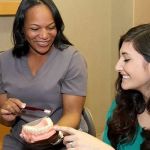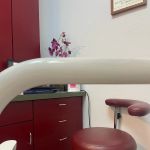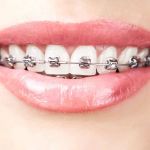How to Care for Your Teeth if You Have Braces
When you get braces, it’s more important than ever to pay extra attention to your oral care routine. While braces help to straighten your teeth and improve your smile, they can also create challenges when it comes to keeping your teeth and gums clean. But don’t worry! With the right techniques and tools, you can maintain good oral hygiene throughout your treatment. Here’s how to care for your teeth if you have braces.
1. Brush Your Teeth After Every Meal
One of the key aspects of caring for your teeth while wearing braces is ensuring that food doesn’t get trapped in the brackets and wires. Food particles can easily become lodged in these places, creating an ideal environment for plaque buildup, cavities, and gum disease. To prevent this, you should brush your teeth after every meal. A soft-bristled toothbrush is recommended to avoid damaging your braces, and it’s also helpful to use a fluoride toothpaste to strengthen your teeth and keep your enamel intact.
2. Use the Right Toothbrush and Tools
Standard toothbrushes can be less effective at cleaning around the brackets and wires, so investing in a good toothbrush specifically designed for braces can make a big difference. Many orthodontists recommend using an electric toothbrush because its vibrating action can help to remove plaque more effectively. Additionally, don’t forget to use orthodontic floss or floss threaders to clean between your teeth and braces. Regular flossing helps to remove food particles and plaque, which can otherwise lead to gum inflammation and cavities.
3. Rinse With Mouthwash
Using a fluoride mouthwash can be an excellent addition to your oral hygiene routine. Mouthwash helps to kill bacteria, remove food particles, and strengthen your teeth, all while reaching areas that a toothbrush may miss. Be sure to use mouthwash that is specifically designed for braces or one that contains fluoride to help prevent cavities and tooth decay.
4. Be Careful With What You Eat
When you have braces, it's best to avoid certain foods that can damage your brackets or get stuck in your braces. Sticky foods like caramel, toffee, and chewing gum can pull the wires and brackets out of place. Hard foods, such as nuts and hard candy, can break your brackets or wires. Try to cut fruits, vegetables, and other hard foods into smaller pieces to make them easier to eat without risking damage to your braces.
5. Regularly Visit Your Orthodontist
Routine checkups with your orthodontist are essential to ensure that your braces are working effectively and that no damage has occurred. These visits are also a great time to get your braces adjusted and to ask any questions about your oral care routine. Your orthodontist may also recommend professional cleanings during your treatment to make sure that your teeth remain as healthy as possible.
6. Use Wax to Relieve Discomfort
When you first get your braces or after getting an adjustment, you might experience some discomfort, especially from the brackets rubbing against the inside of your mouth. A small piece of orthodontic wax can be placed over the brackets to create a barrier and relieve irritation. It’s a simple solution that can make a big difference in your comfort level while wearing braces.
7. Stay Hydrated
Drinking plenty of water throughout the day is crucial for oral health, especially if you have braces. Water helps to rinse away food particles and bacteria, and it also helps to keep your mouth hydrated, preventing dry mouth. Dry mouth can increase the likelihood of plaque buildup and cavities, so it’s important to stay hydrated to maintain optimal oral health.
8. Keep an Eye on Your Gums
Having braces can sometimes cause your gums to become swollen or bleed, especially if you don’t clean them properly. This is known as gingivitis, and it can be avoided with the right oral care routine. Pay close attention to your gum health by brushing gently along the gumline, using fluoride toothpaste, and flossing between your teeth. If your gums are bleeding or swollen, it might be a sign that you need to improve your cleaning technique or see your orthodontist for a professional cleaning.
Conclusion
Caring for your teeth while wearing braces requires extra effort and commitment, but it’s well worth it for a healthy, beautiful smile. By brushing and flossing regularly, using the right tools, visiting your orthodontist, and paying attention to your diet, you can ensure that your braces treatment is as effective as possible. Remember, good oral hygiene is essential to achieving the results you want, so make it a priority every day!







 Blue Bell Orthodontics - David Markowitz, D.M.D.4.0 (333 review)
Blue Bell Orthodontics - David Markowitz, D.M.D.4.0 (333 review) Troy Orthodontics4.0 (75 review)
Troy Orthodontics4.0 (75 review) Atlanta Dental Center4.0 (807 review)
Atlanta Dental Center4.0 (807 review) Dr. Chona F. Yu, DDS4.0 (18 review)
Dr. Chona F. Yu, DDS4.0 (18 review) Summer Smile Dental South Gate4.0 (461 review)
Summer Smile Dental South Gate4.0 (461 review) Advanced Dental Artistry: Kenneth J. Yost, DMD, PA4.0 (121 review)
Advanced Dental Artistry: Kenneth J. Yost, DMD, PA4.0 (121 review) The Importance of Oral Health Education During Pregnancy for a Healthy Pregnancy
The Importance of Oral Health Education During Pregnancy for a Healthy Pregnancy Best Tips for Brushing Your Teeth Properly for Healthy Gums: Essential Techniques for Oral Health
Best Tips for Brushing Your Teeth Properly for Healthy Gums: Essential Techniques for Oral Health Why Skipping Dental Checkups Can Lead to Bigger Oral Health Problems
Why Skipping Dental Checkups Can Lead to Bigger Oral Health Problems Advantages of Porcelain Dental Restorations
Advantages of Porcelain Dental Restorations How Can Diabetes Cause Tooth and Gum Problems? Preventing and Managing Oral Health Issues
How Can Diabetes Cause Tooth and Gum Problems? Preventing and Managing Oral Health Issues Healthy Habits for Promoting Good Oral Health and Hygiene: Tips for a Healthy Smile
Healthy Habits for Promoting Good Oral Health and Hygiene: Tips for a Healthy Smile